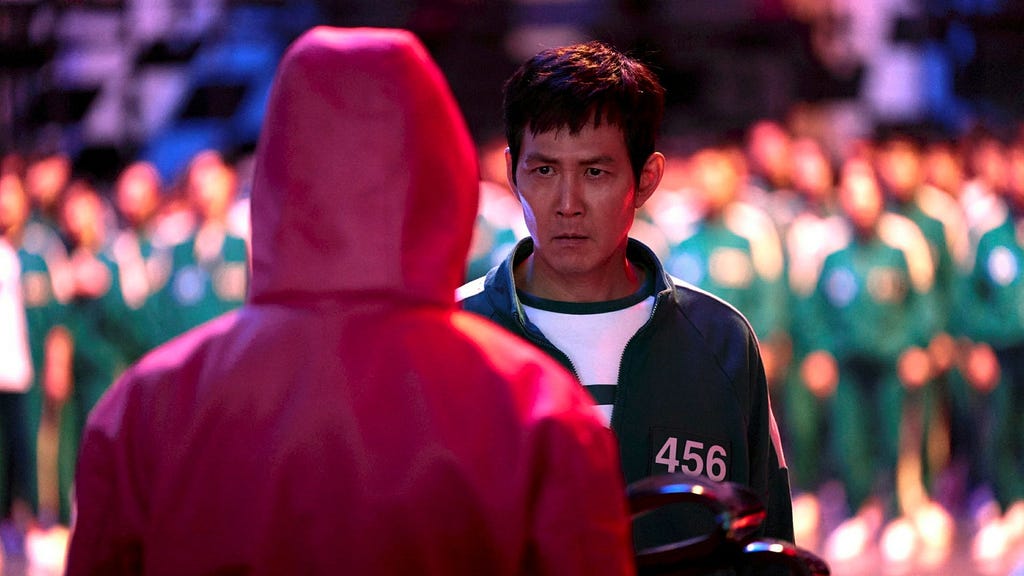The holiday season found me and my partner immersed in the dystopian world of ”Squid Game” season two, a South Korean Netflix series. Like its predecessor, the show plunges 456 debt-ridden individuals into a brutal competition where only one survives, winning an unimaginable fortune while the rest are systematically executed. The juxtaposition of this violent spectacle with the festive backdrop of Christmas pajamas and a box of chocolates highlighted the surreal experience. The show’s stunning visuals, saturated pastel colors, and intricate set designs were a feast for the eyes, yet the visceral nature of the on-screen violence left a lingering unease. The stark contrast between the cozy domesticity of our setting and the brutal reality depicted on screen underscored the increasingly blurred lines between fiction and reality. The experience prompted a profound questioning of the show’s value, oscillating between ”good” and ”bad” without settling on a definitive opinion.
This ambivalence stems not from a lack of substance in ”Squid Game,” for it offers a relatively ambitious critique of late-stage capitalism. The show’s not-so-subtle analogies, like the contestants’ desperate pleas for “one more game” despite the lethal consequences, effectively depict the lengths to which people will go for the elusive promise of upward mobility. The desperation of the players, willing to sacrifice their lives for a statistically improbable chance at wealth, mirrors the real-world struggles of those trapped in a system that perpetuates economic inequality. While the show’s aesthetics are undeniably captivating, the sheer beauty of modern television can sometimes create a barrier to emotional engagement. The visual spectacle, while impressive, can distract from the underlying message and create a sense of detachment from the characters and their plight. This disconnect raises the question of whether the increasing emphasis on aesthetics in contemporary television comes at the expense of genuine emotional connection.
This detachment, I hypothesize, is a symptom of a broader societal trend: the increasing fictionalization of reality. Every event, it seems, is filtered through a lens of narrative, expected to convey some grand, symbolic meaning about our times. This constant search for meaning, this overlaying of narrative onto lived experience, can paradoxically lead to a diminished capacity for genuine emotional engagement. The oversaturation of narratives, from news cycles to social media, has created a sense of narrative fatigue, where even the most extreme events, like the murder case detailed by Saga Cavallin, are consumed as just another story. The lines between real-life tragedy and fictionalized drama become increasingly blurred, as evidenced by the suspect’s actions, mirroring the social critique presented in ”Squid Game.”
This blurring of reality and fiction extends to the realm of fiction itself, creating a feedback loop where even the most elaborate and high-budget productions fail to resonate deeply. The constant bombardment of narratives, both real and fictional, has dulled our senses. Where once there was a hunger for stories that explained the world, now the world seems to consist of nothing but stories about stories about stories. This infinite regress of narratives creates a sense of detachment, a feeling that nothing is truly real or consequential. Even a show as visually stunning and thematically ambitious as ”Squid Game” can feel hollow, failing to elicit the emotional response it seemingly aims for.
This is not to dismiss the importance of art and storytelling. Culture continues to play a vital role in society, and the artistic exploration of complex themes is essential. However, the case of ”Squid Game” highlights a growing challenge: how to maintain the power of storytelling in a world saturated with narratives. My experience watching the show, a feeling of profound indifference despite its undeniable production value and social commentary, speaks to this challenge. The show’s massive viewership, while impressive, further underscores the question: Are we truly engaging with these stories, or simply consuming them passively, numbed by the sheer volume of narratives competing for our attention?
The logical conclusion might be to step away from the screens and engage with the ”real world,” but even this distinction has become increasingly difficult to define. In a society permeated by storytelling, the very notion of reality becomes fictionalized. The challenge, then, is not simply to escape the world of fiction, but to find new ways to engage with stories, to rediscover the power of narrative in a world where narrative itself has become ubiquitous, and perhaps, consequently, less meaningful. The question remains: how do we reclaim the power of storytelling in an age of narrative overload?














